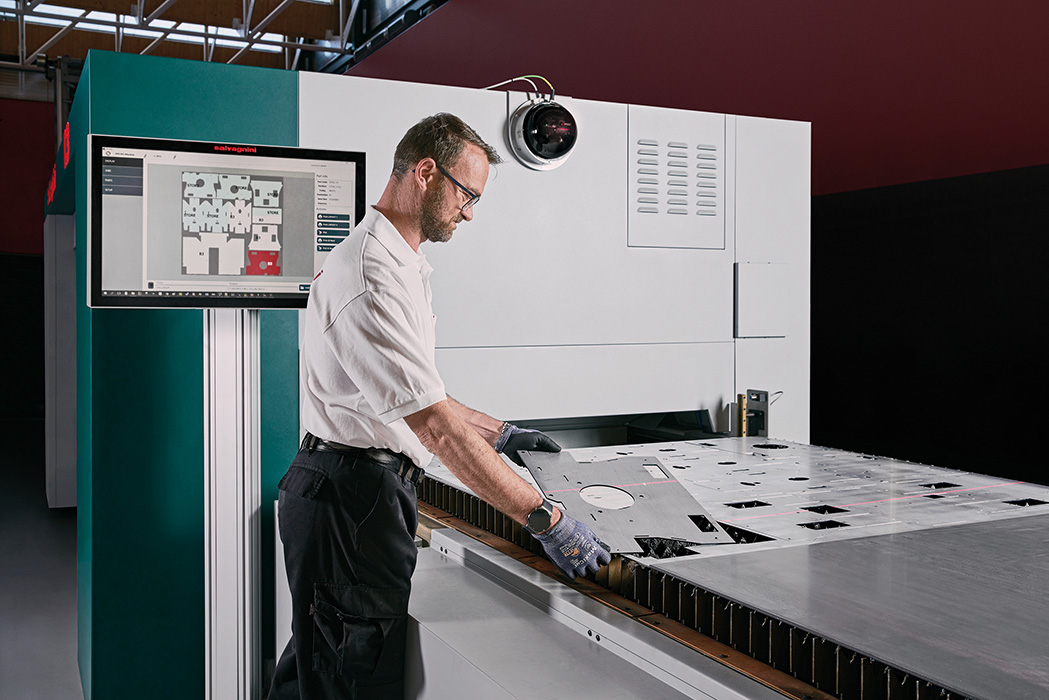Coordinate your factory in real time with OPS
The adoption of evolved digital technologies makes it possible to implement and manage complex, integrated, highly automated high-performance systems, and can help develop simple solutions that require no structural changes to the production layout, making the world of smart manufacturing much more accessible.
The adoption of evolved digital technologies makes it possible to implement and manage complex, integrated, highly automated high-performance systems, and can help develop simple solutions that require no structural changes to the production layout, making the world of smart manufacturing much more accessible.

In the production equation, OPS, the modular Salvagnini process software, acts as a central coordinator, managing and distributing information among all the environments to make the process truly efficient.
OPS defines the rules and algorithms used to automate the process, adding intelligence to the system: it can set limits in terms of maximum tolerable scrap, efficiency, or the number of kits to include in a single nesting, ensuring that the system complies with these logics.
OPS can take independent decisions, according to a production logic or a mix of multiple production logics. It is also used to exchange information between different technologies, such as the components of an FSJ cell (Flexible Smart Job shop).
The OPS Shop Floor Control module integrates solutions for labelling, traceability and warehouse management, to support operators in the logistics management of parts.
The software makes it possible to display on a touch monitor with an intuitive interface, or to print on a label, the characteristic information of the part such as the identification code, job code, next work station; it can also display a barcode on the label to automatically call up the next machining program.
OPS Shop Floor Control also returns the information to the factory ERP, marking the part picked up as completed and updating the production list. It is a simple technology, which helps reduce the time for sorting and logistics of parts produced, avoiding identification errors, reducing process costs and increasing reactivity in production.

How OPS can help you:
- by organizing production, defining priorities, managing any order changes or cancellations and checking the availability of the raw materials or semi-finished parts needed for production;
- by automatically creating nests and machine programs, grouping parts by material, thickness, tool set-up required for any downstream operations, production and job orders;
- by providing feedback to the factory ERP, updating material availability and state of production in real time, part by part;
- by reducing or eliminating any redundant activities with low added value;
- by integrating labeling, traceability and stock management solutions, minimizing error risk and waiting times.
Do you have any questions?
